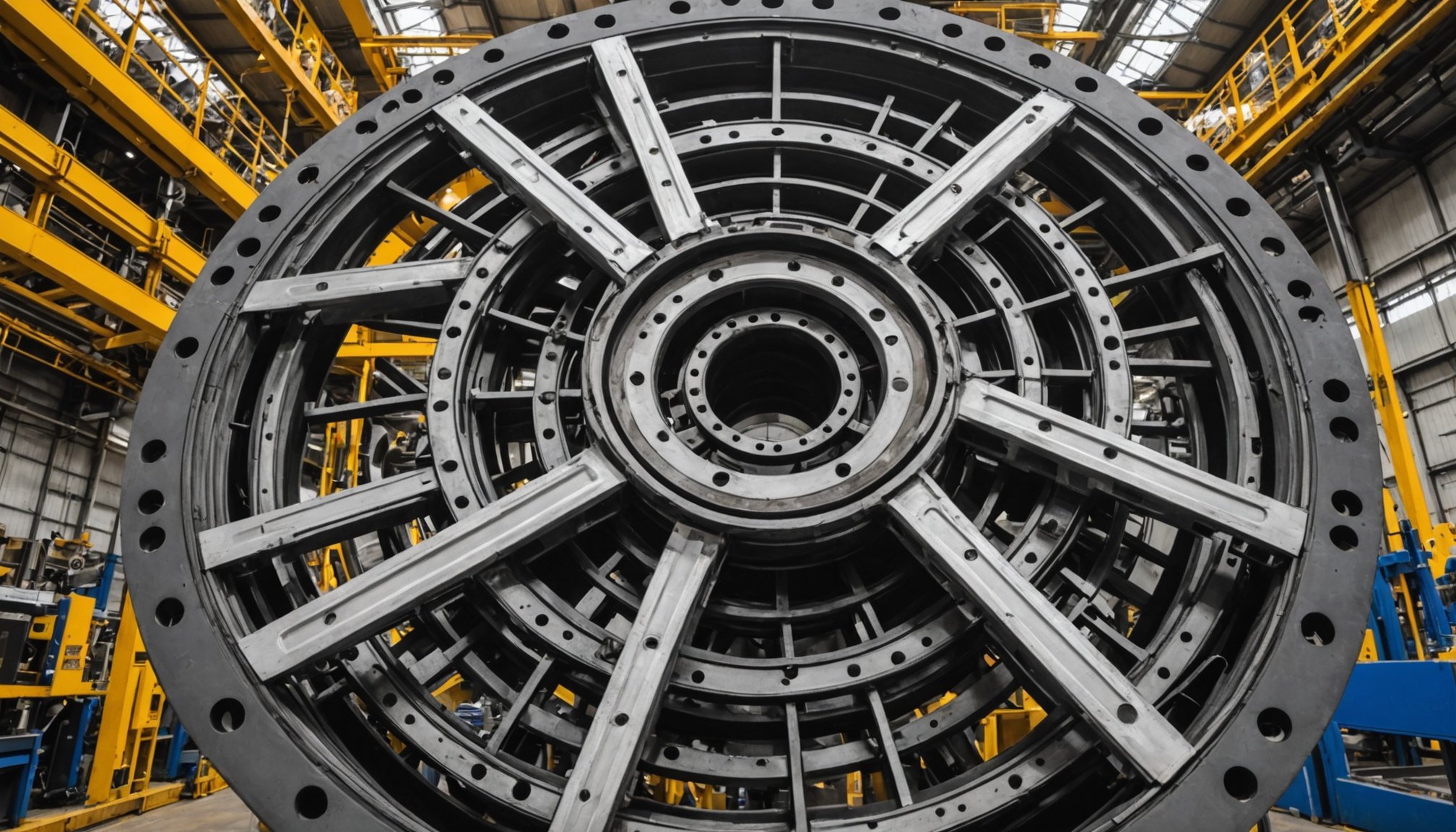Unlocking Circular Economy Success: Key Strategies for UK Manufacturing Implementation
Understanding the Circular Economy
The concept of a circular economy has gained significant traction in recent years, particularly as countries like the UK strive to achieve sustainable growth and reduce their environmental footprint. At its core, a circular economy is an economic system aimed at eliminating waste and the continual use of resources. This approach is in stark contrast to the traditional linear economy, which follows a take, make, dispose model.
In the UK, the new Labour government has placed a strong emphasis on transitioning towards a circular economy, recognizing its potential to drive economic growth, reduce greenhouse gas emissions, and conserve resources. As Rachel Reeves, Chancellor of the Exchequer, highlighted, “Growth is the number one mission of this government. Our new industrial strategy is central to that growth mission,” and a key part of this strategy involves embracing circular economy practices[2].
Additional reading : Essential KPIs for Effective Social Media Marketing in the UK Real Estate Sector
The Role of Quality Recycling
One of the critical components of a successful circular economy is high-quality recycling. The Confederation of Paper Industries (CPI) has consistently argued that the quality of recyclate is paramount to creating a viable circular economy. Dimitra Rappou, Executive Director of Sustainable Products at CPI, emphasized that “high-quality recyclate enhances market demand, both domestically and internationally, and reduces reliance on virgin resources”[3].
The current recycling system in the UK, particularly the commingled recycling method, has been criticized for its high contamination rates. For instance, contamination rates for paper and card in commingled systems can be as high as 15.5% and 12%, respectively, compared to 1.1% and 4% in separate collection systems. This highlights the need for source-separated collection systems to ensure better-quality recyclate.
Topic to read : Essential Strategies for UK Startups to Thrive in the Competitive Health Tech Industry
Key Strategies for Implementation
Focus on High-Quality Recyclate
-
Source-Separated Collection Systems: Implementing separate collection systems for different materials can significantly reduce contamination rates and improve the quality of recyclate. This approach has been successfully adopted in regions like Wales, which has achieved some of the highest recycling rates in Europe[3].
-
Clear Standards for Recyclate Quality: The government must set clear standards for recyclate quality to ensure consistency and reliability. This would attract investment into the UK’s manufacturing sector by guaranteeing a reliable supply of high-quality materials.
Integrated Materials Strategy
-
Reuse and Recycle Critical Materials: A report by the National Engineering Policy Centre emphasizes the need to reuse and recycle critical materials such as lithium and magnesium to improve economic security and achieve net-zero goals. Reducing the size of electric vehicle batteries by a third, for example, could cut lithium demand by 17% and save 75 million tonnes of rock mined for lithium by 2040[4].
-
National Materials Data Hub: Creating a National Materials Data Hub to monitor material consumption and use can help in making informed decisions about resource management and recycling.
Design for Sustainability
-
Reduce Material Demand: Investing in design to reduce material demand is crucial. This involves accounting for material requirements when planning infrastructure and system transformations to avoid dependencies on scarce or unsustainable resources[4].
-
Incentives for Recycling: Designing incentives and investing in engineering capacity can encourage the development of more recycling facilities that can process complex materials like wind turbines and electronic devices.
Sector-Specific Approaches
The UK’s modern industrial strategy, dubbed “Invest 2035,” focuses on eight high-growth sectors that are critical to driving the green economy and sustainable growth. Here’s how some of these sectors can implement circular economy practices:
Advanced Manufacturing
-
Innovation in Recycling Technologies: Advanced manufacturing can leverage innovative technologies like 6K’s UniMelt microwave plasma technology to convert used battery minerals into cathode active materials, creating a circular supply chain[4].
-
Investment in R&D: Boosting investment in research and development can help the industry create jobs, drive innovation, and grow export opportunities, all while adopting sustainable practices.
Life Sciences and Clean Energy
-
Sustainable Resource Management: Life sciences and clean energy sectors can benefit from sustainable resource management practices. For example, the use of green hydrogen in industrial processes can significantly reduce carbon emissions[5].
-
Circular Economy in Packaging: The food and drink manufacturing sector can adopt circular economy practices in packaging by using mass balance accounting, which enables companies to use recycled content in food-grade packaging[5].
Policy and Regulatory Support
Pro-Business Environment
The UK government is committed to creating a pro-business environment that supports the transition to a circular economy. Here are some key policy areas:
-
People and Skills: Investing in education and training programs to develop the skills needed for a circular economy, such as in recycling technologies and sustainable manufacturing practices[2].
-
Innovation: Encouraging innovation through funding for research and development in circular economy technologies and practices.
-
Energy and Infrastructure: Developing energy and infrastructure policies that support the transition to renewable energy sources and efficient resource use.
-
Regulatory Environment: Streamlining the regulatory environment to reduce barriers to investment in circular economy initiatives.
International Partnerships and Trade
-
Global Cooperation: Engaging in international partnerships to share best practices and technologies in circular economy implementation. This can include collaborations with organizations like the Ellen MacArthur Foundation, which is a global leader in circular economy research and advocacy.
-
Trade Policies: Implementing trade policies that support the import and export of recycled materials and products, facilitating a global circular economy.
Practical Insights and Actionable Advice
For businesses looking to transition to a circular economy model, here are some practical insights and actionable advice:
Conduct a Life Cycle Assessment
- Understand Resource Use: Conduct a life cycle assessment to understand the resource use and environmental impact of your products. This can help identify areas where circular economy practices can be implemented.
Adopt Circular Business Models
- Product-as-a-Service: Consider adopting product-as-a-service models where products are leased rather than sold, encouraging the return of products for recycling or reuse.
Engage with Stakeholders
- Collaboration: Engage with stakeholders including suppliers, customers, and government bodies to create a collaborative environment that supports circular economy practices.
Invest in Technology
- Innovative Technologies: Invest in innovative technologies that support recycling, reuse, and the reduction of waste. This could include technologies like 3D printing and advanced recycling processes.
Transitioning to a circular economy is a complex but necessary step for the UK’s manufacturing industry to achieve sustainable growth and reduce its environmental impact. By focusing on high-quality recycling, implementing integrated materials strategies, and adopting sector-specific approaches, businesses can play a crucial role in this transition.
As Jim Bligh, Director of Corporate Affairs and Packaging at the Food and Drink Federation, noted, “Driving investment and growth is critical to ensuring the continued success of the UK’s largest manufacturing sector, and protecting the nation’s food security. So we welcome the Chancellor’s focus on a consistent, long-term approach to tax and regulation, which should help unleash the growth potential of the food and drink manufacturing industry’s 12,500 businesses”[5].
The UK’s journey towards a circular economy is just beginning, but with the right strategies, policies, and collaborations, it can unlock significant economic, environmental, and social benefits.
Table: Key Strategies for Implementing a Circular Economy in UK Manufacturing
| Strategy | Description | Benefits |
|---|---|---|
| High-Quality Recycling | Implement source-separated collection systems to reduce contamination rates. | Enhances market demand, reduces reliance on virgin resources, and supports the paper industry. |
| Integrated Materials Strategy | Reuse and recycle critical materials like lithium and magnesium. | Improves economic security, achieves net-zero goals, and reduces material demand. |
| Design for Sustainability | Invest in design to reduce material demand and create incentives for recycling. | Avoids dependencies on scarce resources, supports decarbonization initiatives, and retrieves valuable materials. |
| Sector-Specific Approaches | Advanced manufacturing: innovation in recycling technologies. Life sciences and clean energy: sustainable resource management. | Drives innovation, creates jobs, grows export opportunities, and reduces carbon emissions. |
| Policy and Regulatory Support | Create a pro-business environment with policies supporting people and skills, innovation, energy and infrastructure, and regulatory environment. | Reduces barriers to investment, supports international partnerships and trade, and facilitates a global circular economy. |
| Practical Insights and Actionable Advice | Conduct life cycle assessments, adopt circular business models, engage with stakeholders, and invest in technology. | Helps businesses understand resource use, adopt sustainable models, collaborate effectively, and leverage innovative technologies. |
Detailed Bullet Point List: Benefits of a Circular Economy
-
Economic Benefits:
-
Creates new job opportunities in recycling and sustainable manufacturing.
-
Attracts investment into the UK’s manufacturing sector.
-
Enhances the marketability of UK-produced recyclate both domestically and internationally.
-
Supports long-term economic growth by reducing reliance on virgin resources.
-
Environmental Benefits:
-
Reduces greenhouse gas emissions by cutting the demand for virgin resources.
-
Conserves resources by promoting reuse and recycling.
-
Minimizes waste and the environmental impact of production processes.
-
Helps achieve net-zero goals by reducing material footprint.
-
Social Benefits:
-
Protects the nation’s food security by supporting sustainable food and drink manufacturing practices.
-
Ensures tangible impact in communities across the UK by creating high-quality jobs and driving regional growth.
-
Enhances the quality of life by reducing pollution and promoting sustainable resource management.
By embracing these strategies and benefits, the UK can unlock the full potential of a circular economy, driving sustainable growth, reducing environmental impact, and ensuring a resilient and inclusive economic future.











